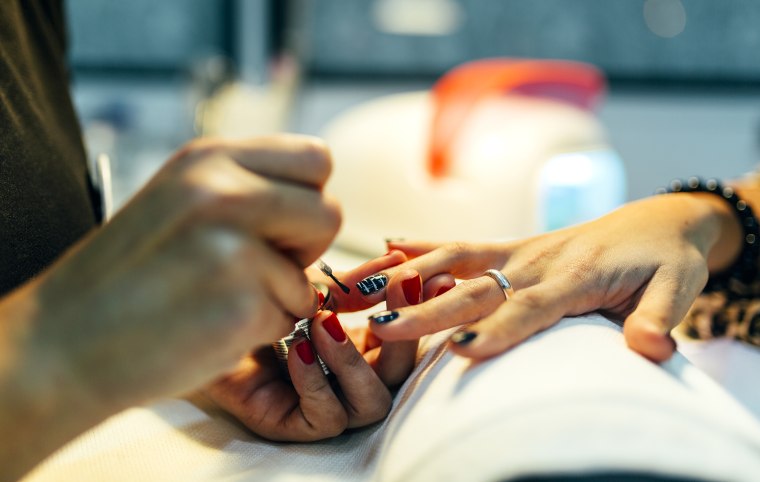LOS ANGELES — California Gov. Jerry Brown on Friday signed into law a bill that advocates say will benefit manicurists and salon workers by requiring professional cosmetics manufacturers to label the ingredients used in their products.
Under federal law, retail cosmetic manufacturers are required to disclose all ingredients in their products, while those marketed to and used by salon professionals are not subject to the same regulation. The new California law requires professional cosmetics sold on or after July 1, 2020, in the state to disclose ingredients in the same way as consumer cosmetics under federal law.
Advocates are touting the law as the first of its kind in the nation.
“This is a huge win for salon professionals, workers and owners who deserve to have as much information as possible about the products they use every day and that they apply to customers,” said Catherine Porter, policy director of the California Healthy Nail Salon Collaborative, an organization that serves a workforce largely of Asian immigrant women and that supported the legislation.
“It also will have the effect, we hope and we assume, of pressuring or influencing manufacturers to make products safer so that they don’t have to list the more harmful ingredients on their products,” she added.
The bill was introduced earlier this year by California Assemblyman Ash Kalra, a Democrat whose district includes parts of San Jose, home to more than 100,000 Vietnamese-Americans, according to U.S. Census estimates. The salon collaborative and the UCLA Labor Center estimate that about 67 percent of California manicurists are of Vietnamese descent, according to an analysis of U.S. census data.
Multiple studies have found that cosmetologists and hair dressers are at an increased risk of reproductive disorders compared to the general population. Nail salon workers endure prolonged exposure to chemicals that can cause a number of conditions including headaches, asthma, and liver and kidney damage, according to the Occupational Safety and Health Administration.
"I introduced AB 2775 with these workers in mind, most of whom spend 8-10 hours a day exposed to unlabeled chemicals,” Kalra said in an email. “By seeking parity with retail cosmetics, we treat transparency and awareness as a standard for women, workers and consumers.”
Kalra's bill also comes as a victory for the black community, said Marissa Chan, environmental research and policy manager at Black Women for Wellness, another organization that backed the legislation.
Research has found that many hair products used by black women contained chemicals that disrupted hormones or were associated with asthma. Black Women for Wellness in 2016 published a report that outlined research about the health effects of beauty products used by black women compared to the general population.
“Some of the most dangerous products are relaxers and hair dyes," she said. "Because of this, black communities, black stylists, and black women specifically are the most overexposed and underprotected to chemicals in these products.”
Chan said California's new legislation removes one of the barriers for salon workers to making informed decisions about their health, and Porter noted that it's a huge step toward making all cosmetics safer and ingredients more transparent.
A subsequent step should be to educate salon professionals about the types of chemicals used in products and what potential health outcomes are, Chan added, so that they can make decisions about what products they have in the workplace.
Follow NBC Asian America on Facebook, Twitter, Instagram and Tumblr.

